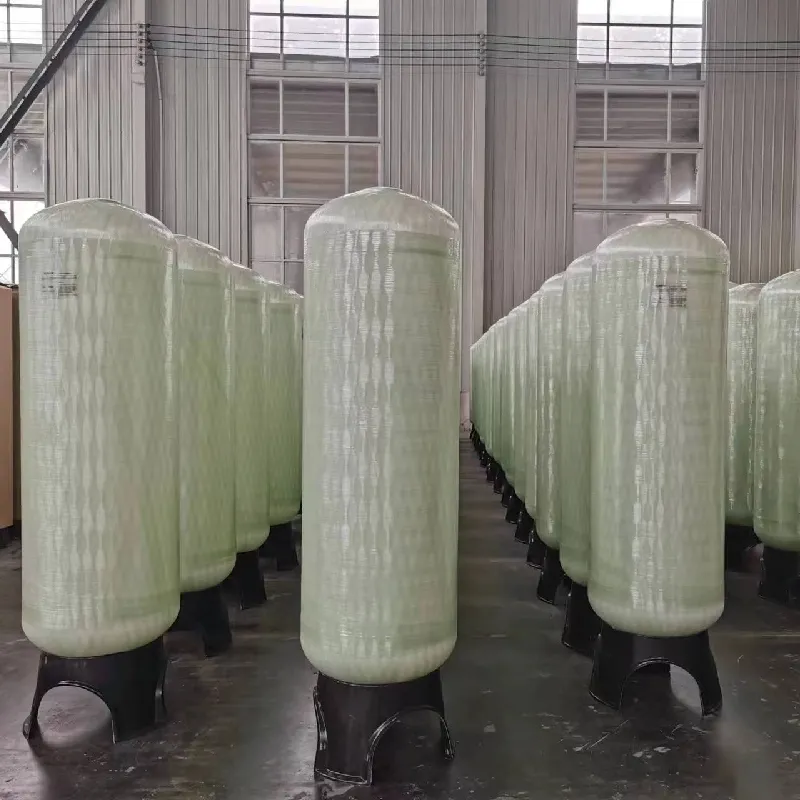loading...
- No. 9, Xingyuan South Street, Dongwaihuan Road, Zaoqiang County, Hengshui, Hebei, China
- admin@zjcomposites.com
- +86 15097380338
- Welcome to visit our website!
Understanding the Function and Maintenance of Pressure Tanks in Various Applications
Understanding Pressure Tanks Functionality, Uses, and Maintenance
Pressure tanks play a vital role in various industries, residential settings, and agricultural applications. These vessels are designed to hold fluids at a pressure significantly different from the ambient atmosphere. They are crucial in ensuring the efficient and safe storage and distribution of fluids, including water, chemicals, and gases. In this article, we delve into the functionality, uses, and essential maintenance of pressure tanks.
What is a Pressure Tank?
A pressure tank is typically a cylindrical vessel made from sturdy materials capable of withstanding high pressure. The internal structure of these tanks is designed to minimize stress and ensure safety during operation. Various types of pressure tanks exist, including those specifically designed for water systems, chemical processing, and gas storage. The most commonly encountered type in residential settings is the water pressure tank, which stores water under pressure to provide a reliable supply from well systems.
Functionality of Pressure Tanks
The primary function of a pressure tank is to store fluids and maintain pressure within a defined range. Water pressure tanks, for instance, work by using air pressure to force water into the plumbing system as needed. When a faucet is opened, the decreased pressure inside the tank triggers the water to flow out. Conversely, when the faucet is closed and pressure builds, the tank prevents water from backing up into the well.
Pressure tanks also come equipped with internal bladders or diaphragms. These components separate the storage fluid from the air cushion above, ensuring that the water does not come into direct contact with the air. This design helps prevent issues such as water contamination and erosion of the tank materials.
Applications of Pressure Tanks
Pressure tanks are utilized across a variety of sectors. In residential settings, they are essential in private water systems, where they provide consistent water pressure for household chores like bathing, cleaning, and cooking. Agricultural facilities often utilize pressure tanks for irrigation systems, ensuring that water is distributed evenly across fields for crops.
pressure tank

In industrial applications, pressure tanks are pivotal in manufacturing processes. They are used for storing chemicals safely, facilitating the effective mixing of substances, and ensuring a steady supply of gas for operations. Additionally, in refrigeration systems, pressure tanks help manage the cooling agents needed to maintain optimal temperatures in various applications.
Maintenance of Pressure Tanks
To ensure that pressure tanks function efficiently and last for an extended period, regular maintenance is crucial. Here are some essential tips
1. Regular Inspections Periodically check for any signs of corrosion, rust, or leaks. Spotting these issues early can prevent major problems later on.
2. Pressure Monitoring Regularly monitor the pressure levels in the tank. Each type of tank has a recommended pressure range, and maintaining this is vital for peak performance.
3. Air Pressure Checks For water pressure tanks, check the air pressure at the tank's air valve periodically. An under-inflated air chamber can cause frequent cycling of the pump, leading to increased wear and tear.
4. Water Quality Testing In residential water tanks, regularly test the water quality to ensure it remains safe for consumption. Contaminated water can lead to health issues.
5. Professional Servicing Consider scheduling professional maintenance every few years. Experts can thoroughly inspect and service the tank, addressing any issues that may be overlooked during routine checks.
In conclusion, pressure tanks serve an essential function in various applications, providing safe and efficient methods for storing and distributing fluids. Understanding their functionality and implementing proper maintenance can significantly enhance their longevity and effectiveness, ensuring safety and reliability across industries and households alike.
-
GRP Structures: The Future of Lightweight, High-Performance EngineeringNewsJun.20,2025
-
FRP Water Tank: High-Performance Storage for Corrosive and Clean Water SystemsNewsJun.20,2025
-
FRP Square Tube: The New Industry Standard for Chemical and Structural ApplicationsNewsJun.20,2025
-
FRP Pultruded Profiles: The Ultimate Choice for Lightweight Structural StrengthNewsJun.20,2025
-
FRP Handrails: The Safer, Smarter, and Stronger Choice for Modern InfrastructureNewsJun.20,2025
-
FRP Grating: The Smart Solution for Durable, Lightweight Industrial FlooringNewsJun.20,2025
-
Why Choose a Galvanized Water Tank for Your Storage NeedsNewsMay.21,2025
